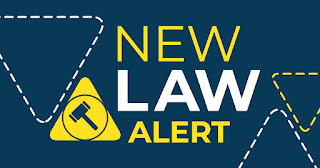Victims of sexual harassment and sexual assault can now proceed in a class action, with other victims, and can also litigate their case in court, individually or collectively, regardless of having previously executed an arbitration agreement.
This is really important because powerful companies have traditionally forced their employees and independent contractors to sign predispute joint-action waivers, which prevent victims from bringing joint, class, or collective actions against those companies for sexual harassment and sexual assault. The Ending Forced Arbitration of Sexual Assault and Sexual Harassment Act of 2021 invalidated such waivers. Now, victims can work collectively and take on powerful companies in court in the same way that a union equalizes employee bargaining power at the proverbial negotiating table.
The Act also invalidates mandatory arbitration agreements, which heavily favor companies who regularly pay the same arbitrators, know their rules, have relationships, and win a vast majority of the time.
To learn more about this new law, here is an audio recording of my appearance on The Jay Oliver Show explaining the importance of the law right after it was passed by the Senate. To be clear, the recording misstates the law's effectiveness to past claims. The law only applies to claims that "arise[] or accrue[] on or after the date of enactment," which was March 2, 2022.











